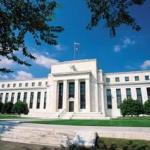 About 60-years ago twentieth century economist Hyman Minsky developed his Financial Instability Hypothesis. His main premise was that economic stability breeds instability. How’s that possible?
About 60-years ago twentieth century economist Hyman Minsky developed his Financial Instability Hypothesis. His main premise was that economic stability breeds instability. How’s that possible?
As Minsky observed, financial crisis follow periods of economic stability and prosperity. Moreover, it’s these periods of prosperity that sow the seeds of the next calamity. In short, the extended stability encourages borrowers and lender to progressively take on greater risk. This results in ever greater increases in credit and debt, which inflates asset prices.
Eventually, excess optimism leads to instability…lending and debt move to unsustainable levels. Debt levels move beyond what the economy can support. Financial bubbles then burst. Asset prices crash and the mistakes of the preceding boom are corrected.
Last week the DOW offered a stark reminder that stocks don’t always go up. What’s more, in addition to not always going up…something else can happen. Stocks can go down.
After a soft slide on Monday and Tuesday, followed by a robust rally on Wednesday, the bottom fell out on Thursday. The DOW dropped 264 points. This marked its biggest single day decline since July 31.
The Ringing Grows Louder
What does it mean? Perhaps Friday’s 167 point bounce means the good times are still here to stay. More likely, it’s the market’s last hurrah.
The seasons are changing. The days are getting shorter. The nights are getting longer. The mornings are crisp. Fall is in the air.
So, too, the stock market’s on the cusp of a secular change. A Minsky tipping point could trigger a prolonged selloff. In fact, it’s possible that tipping point’s already passed. People just don’t know it yet.
“No one rings a bell at the top,” goes the old saw. But, at the moment, if you close your eyes and open your ears, you will hear several bells ringing. Plus, each day, the ringing grows louder and louder.
ISIS pulling President Obama’s chain. Putin pulling President Obama’s chain. Ebola. The “poisonous combination” of record debt and slowing growth. Volatility at record lows – until last week – while stocks are at record highs. The end of quantitative easing. Unfettered increases in government debt.
Obviously, there are numerous reasons why stocks should fall. Here’s one perspective that ties many of them together…
The End of Extend and Pretend
“The world’s three economic superpowers – the U.S., China and Europe – are heading for a major collapse in asset values because their economic models favor consumption instead of productivity, one economist has warned.
‘“We’re still not wise enough to realize that our current model is a ‘Ponzi’ scheme rushing toward its inevitable ‘Minsky moment’,’ Steen Jakobsen, a chief economist at Danish investment bank Saxo Bank, said in a research note on Friday. The term ‘Minsky moment’ refers to a phrase coined for the Asian debt crisis of the late 1990s by Pimco’s Paul McCulley.
“Unsustainable debt will be the cause of the crash, according to Jakobsen, and will occur when the cash returns on assets become insufficient to service the debt taken on to acquire those assets in the first place. He gives no timeframe for his thesis but says that the problem of huge debts has been swept under the carpet by central bankers and policymakers and will come back as low inflation or even deflation.
‘“We’re still working with the same dog-eared script we were introduced to all of five years ago,’ he said. “Maintain sufficiently low interest rates to service the debt burden, pretend to have credible plan, but never address the structural problem and simply buy more time. But while we were able to get away with this theme for an awfully long time, the dynamic is now changing.’”
Yes, the Feds plan of extending the economy’s problems out into the future with cheap credit and pretending everything’s fine or that it will all somehow sort itself out is coming to an end. Quantitative easing’s nearly done. The federal funds rate, which has been at practically zero for six years, can’t stay there forever…certainly, not for another six years.
The stock market will soon realize this. The freefall will follow.
Sincerely,
MN Gordon
for Economic Prism




